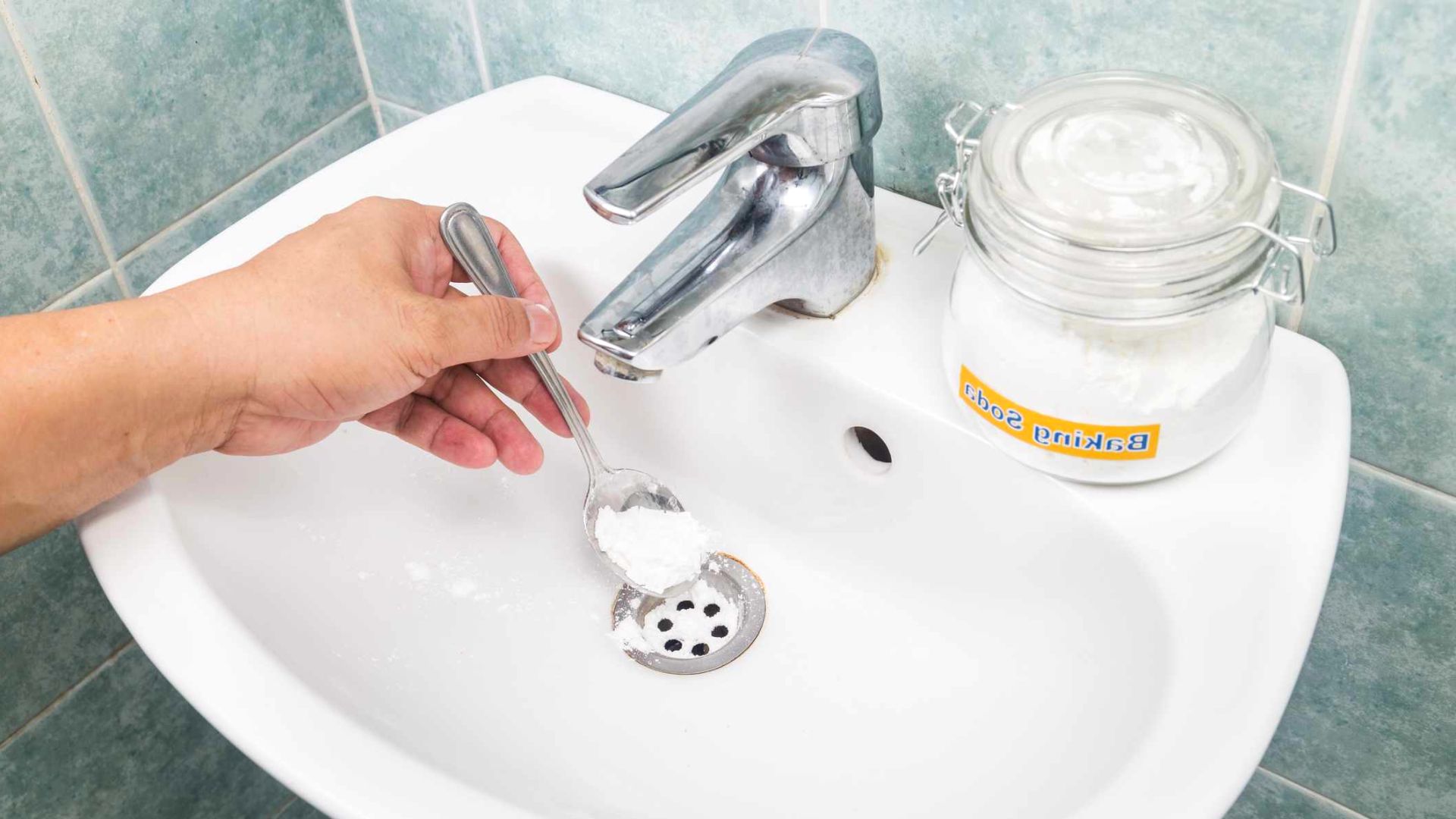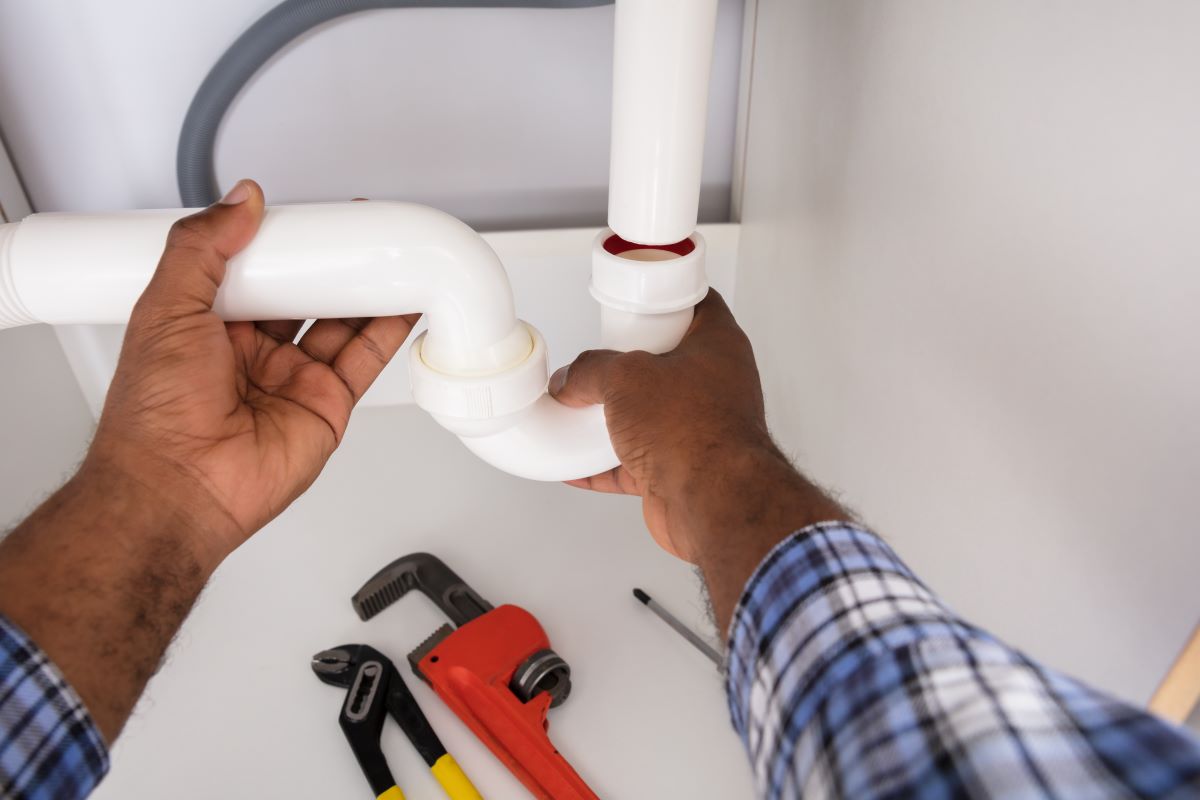Valuable Steps To Fix A Slow-Draining Sink
Valuable Steps To Fix A Slow-Draining Sink
Blog Article
Every person will have their own unique rationale in relation to 4 Tips to Fix a Slow Draining Sink.

Introduction
We've all existed: You're brushing your teeth or cleaning your hands, and you discover the water pooling in the sink. As opposed to rapidly swirling away, it remains, turning your once-refreshing early morning regimen right into a small overload scene. A slow-draining sink isn't just irritating; it's frequently a sign of bigger plumbing concerns prowling beneath the surface. The good news is that many slow-draining sinks can be repaired with a little know-how, a few fundamental tools, and some patience. Ready to tackle this project head-on? Let's roll up our sleeves and dive right in.
Understanding the Root Causes Of a Slow-Draining Sink
Prior to you begin poking around in your pipes, it helps to know what may be triggering the slowdown. Recognizing the source makes it much easier to select the right solution.
Tools and Products You'll Require
The right devices make all the distinction. The good news is, you will not require a fully equipped plumbing's van to do the job.
Step-by-Step Overview to Taking Care Of a Slow-Draining Sink
Now, allow's enter the nitty-gritty. This step-by-step process will certainly guide you with straightforward methods to recover your sink's water drainage.
Step 1: Eliminate and Tidy the Stopper
Typically, the stopper (that tiny plug you lower to obstruct water) is the first perpetrator. Remove it meticulously and clean off any hair or crud entraped around its base. Wash it extensively before putting it back in place.
Action 2: Utilize a Plunger to Dislodge Debris
Got that bettor ready? Setting it over the drainpipe and give it a couple of company pumps. The idea is to produce suction that can loosen up any type of clog. If you see littles debris floating up, you get on the best track.
Step 3: Try a Drain Snake or Cord Hanger
If the plunger doesn't do the trick, it's time to bring out the drainpipe snake. Gently feed it right into the drainpipe and spin as you go. You could feel some resistance-- that's most likely the obstruction. Maintain twisting and drawing until you remove the obstruction. If you do not have a drain serpent, a corrected wire wall mount can work in a pinch.
Tip 4: Use a DIY Drainpipe Cleaner
A natural cleaner made from baking soft drink and vinegar can break down recurring grime. Put half a cup of cooking soda into the drainpipe, followed by half a mug of vinegar. Allow it fizz for about 15 minutes, after that flush with hot water. This chain reaction frequently does wonders for small clogs.
Tip 5: Reassemble and Check the Sink
Put whatever back together and run the faucet. Does the water currently swirl down the tubes at a respectable speed? If yes, offer yourself a pat on the back. If not, don't misery-- there are still a few even more dress up your sleeve.
Vital Tools for DIY Fixes
A bettor is your go-to starting factor. A small, sink-sized bettor produces suction that can remove minor obstructions. For more relentless obstructions, a drainpipe serpent (sometimes called a plumbing professional's auger) works marvels. A pair of handwear covers, a flashlight, and maybe a pair of protective safety glasses are also helpful.
Recommended Cleaning Solutions
Light recipe soap and warm water can help break down oily build-up. A mix of baking soda and vinegar is a reliable natural home remedy, and chemical cleaners offer a more green method. Keep chemical drain cleansers as a last option, as they can be rough on your pipes.
Common Offenders Behind Slow Water Drainage
So, what's obstructing points up? Generally, it's a blend of everyday particles-- believe hair, soap scum, tooth paste deposit, and leftover food bits. Gradually, these little bits accumulate and hold on to the pipeline wall surfaces, progressively narrowing the passage and making it harder for water to pass through. In many cases, natural resource from difficult water can also add to the substance, developing the perfect storm for persistent blockages.
When is it Time to Take Action?
If you observe the water draining slower than common, it's a great concept to step in sooner as opposed to later on. Waiting also long might cause finish blockages, unpleasant smells, and even pipeline damages. If the water takes more than a few seconds to clear out after turning off the faucet, consider it a warning and prepare yourself to put on your do it yourself hat.
Safety First: Preventative Measures and Preparations
Before you launch into unclogging mode, consider safety and security. You're taking care of possibly filthy water and debris, so slip on a set of gloves. If you're using chemical cleaners, make certain the area is well-ventilated and follow the instructions on the tag.
Safety Equipment and Work Space Arrangement
Set some old towels or cloths around the sink location to catch splashes. Clear away any kind of products that may get in your method, like soap dispensers or toothbrush owners. See to it you have excellent illumination-- get a flashlight if required.
Alternate Techniques for Stubborn Clogs
Not all clogs are developed equal. If your sink still declines to cooperate, take into consideration these alternate solutions.
Baking Soda and Vinegar Approach
We already discussed this, yet it's worth keeping in mind once again. This mild, eco-friendly method is more secure than chemical cleansers and typically rather reliable.
Chemical Drain Cleaners
Enzyme-based cleaners utilize natural germs to digest raw material. They're a superb selection if you're seeking to avoid extreme chemicals. Simply remember, they might take a bit longer to function their magic.
Chemical Drainpipe Cleaners: Advantages And Disadvantages
Chemical cleansers can blast with hard blockages fast, yet they're not without disadvantages. They can generate warmth and fumes, damage pipelines if utilized exceedingly, and position ecological dangers. Use them sparingly, and always adhere to the instructions carefully.
Preventive Measures to Maintain Your Sink Flowing
Avoidance is the very best remedy. By adopting a couple of straightforward routines, you can maintain your sink from slowing down to begin with.
Normal Cleaning Routines
Wipe down the sink basin and component location frequently. Get rid of hair or food particles prior to they have an opportunity to wash down the drainpipe.
Preventing Dangerous Compounds Away
Hesitate before dumping coffee premises, grease, or coarse vegetable scraps down the sink. These offenders cling to pipeline walls, developing blockages over time.
Regular Maintenance Checks
Arrange a quick regular monthly examination. Run hot water through the sink for a couple of mins, taking notice of the circulation. If it seems slow-moving, act quickly prior to it ends up being a full-blown obstruction.
When to Call a Professional Plumbing
Occasionally, no matter how hard you try, that obstruct simply will not move. That's when it's time to bring in the pros.
Signs That Indicate an Extra Significant Problem
If your sink drains pipes slowly in spite of multiple efforts, or if you see water backing up in various other fixtures (like your shower or bathroom), you may have a more serious pipes issue lurking much deeper in the system.
Balancing Do It Yourself Efforts with Expert Aid
While do it yourself can conserve you cash and use a sense of achievement, there's no embarassment in calling a specialist. An expert plumber can evaluate your entire pipes configuration, ensuring there's no underlying damage or long-term problem that can cost you extra later on.
Contrasting Costs and Long-Term Solutions
Prior to choosing, think about the big picture. An economical, quick fix may address the trouble momentarily, but buying a more irreversible option could save you money and stress and anxiety in the long run.
Considering the Expenses of DIY vs. Professional Solutions
Do it yourself solutions usually set you back little greater than the price of a bettor or a container of baking soft drink. Specialist services, on the other hand, come with a cost however may avoid repeated problems and pricey fixings later on.
Investing in Top Quality Fixtures and Upgrades
If your sink's layout contributes to constant clogs, it might be worth upgrading to higher-quality components or changing the pipes layout. Consider this an investment in your house's performance and comfort.
Verdict
A slow-draining sink can feel like a minor irritation, yet it's usually a sign that your plumbing needs a little TLC. By understanding the origin, using the right devices and methods, and dedicating to simple safety nets, you can maintain your sink moving easily. And when all else stops working, never hesitate to hire a specialist-- your home's plumbing deserves the financial investment in treatment and maintenance.
Three Common Ways to Fix a Slow Drain
Baking Soda Method
Boil a full pot of water. Measure out cup of baking soda and pour it down the drain. Then take cup of the magical cleansing substance known as white vinegar and drop that down there too. Allow the mixture to fizz in the drain for five minutes as the vinegar and baking soda combine. Now dump in that whole pot of boiling water. This combination of cleaning substances should clear out anything that is causing your sink to drain slowly. If it doesn t...
Zip-It
If the baking soda method doesn t clear out your drain, it may be because a significant amount of hair and/or other debris has collected there and you need to remove it. Purchase a Zip-It tool at any home improvement or hardware store and insert it into your drain. It will catch any collected hair or debris that s blocking the flow of water. Pull it out. If it s got a big clump of hair, etc. on the end, you ve probably got your culprit.
Drain Cleaner
If these methods don t work, there is the standard drain cleaner that you can also buy in a hardware store or even your local grocery store. It s better if you can use a household solution, but these drain cleaners often work in a pinch. They re very simple to use. You generally just dump them in your drain and wait. If even this method is not effective, it may be time to call the plumber.
https://www.mrrooter.com/oneida/about-us/blog/2017/july/three-common-ways-to-fix-a-slow-drain/

We had been made aware of that editorial on Solved! How to Fix a Slow Sink Drain through a pal on another web blog. Are you aware of another individual who is fascinated by ? Feel free to share it. I cherish reading our article about Solved! How to Fix a Slow Sink Drain.
Book A Free Estimate Report this page